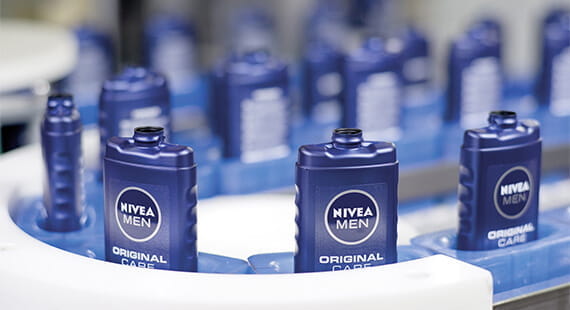
Ensuring the safety of hand sanitisers
Ensuring the safety of hand sanitisers
Preventive measures against the COVID-19 virus outbreak has seen a surge in the purchasing of medical supplies like hand sanitisers. As more businesses switch production lines to produce hand sanitisers to meet growing demands, safety issues are quickly surfacing. Businesses may put themselves and their consumers at risk if they do not comply with global standards.
Thursday, 15 October 2020
In the face of the COVID-19 outbreak, the global hand sanitiser market is expected to rise in demand due to increased preventive measures. As the manufacturing business slows from forced closures, the World Economic Forum reports that many businesses have converted their factories to produce critical medical supplies like hand sanitisers.
In March, LVMH announced it will repurpose its perfume production lines to produce large quantities of hand sanitisers to support French health authorities and citizens, amidst a then nationwide shortage of anti-viral products in the country. In such times of demand, manufacturers are finding an opportunity to get production lines up and running by repurposing factories to mass produce medical supplies. This strategic move prevents an organisation’s facility from shutting down and has a positive impact on brand reputation.
As manufacturers scramble to put factories to work, the surge in production brings about a new issue – the increased level of risk. Many manufacturers are using equipment that are not designed to handle hazardous chemicals and some may not have taken sufficient measures to ensure safe storage of ready-made hand sanitisers.
Working with hydroalcoholic solutions can be hazardous as it is made up of a flammable chemical, and that will place these temporary factories at risk of fire and explosion. When Beiersdorf committed the use of its manufacturing facility in Madrid to produce hydroalcoholic solutions for sanitising hands and surfaces, TÜV SÜD was contacted to help the organisation meet with safety requirements. There was a challenge to quickly convert the production line that produces non-flammable body care products to be one that minimises the risk of fire or explosion introduced by highly flammable materials used to produce the sanitisers.
Having a global network of experts who are familiar with each region’s regulations and are well-trained in evaluating the explosion risks of manufacturing facilities helped to expedite the assessment. In Beiersdorf’s case, TÜV SÜD’s explosion protection experts were quickly deployed to complete a comprehensive assessment of the facility, and identified design and installation modifications needed to comply with the Directive 1999/92/EC of the European Parliament and of the Council of 16 December 1999 on the minimum requirements for improving the safety and health protection of workers potentially at risk from explosive atmospheres.
Stringent measures also have to be taken to regulate the production of hand sanitisers. In the US, calls to the National Poison Data System related to hand sanitisers increased by 79% in March 2020 as compared to the previous year. Most of the calls had involved unintentional exposures in children 5 years-old and younger.
To tackle this, the FDA recommends the use of denatured alcohol for sanitisers, and classifies it as critical, as it can be lethal if children intentionally or unintentionally consume hand sanitisers. Adding denaturants to the alcohol renders the product more bitter and less appealing to ingest, particularly for young children.
As alcohol-based sanitisers are also flammable due to their high alcohol content, it is important to supervise children when they use hand sanitisers and to refrain from using hand sanitisers near open sources of flame. A small amount of sanitiser, if ignited, can burn very quickly, which can lead to personal injury or property damage.
For manufacturers making the switch, quality control processes are essential to ensure that hand sanitisers produced are effective and safe. TÜV SÜD offers testing for businesses around the world to ensure the compliance and quality of hand sanitisers. This includes composition checks as per FDA and WHO guidelines, and testing on the effectiveness of hand sanitisers which are based on the following evaluations:
The above tests are generally used to evaluate the bactericidal, fungicidal or sporicidal activities in chemical disinfectants and antiseptics, and they do not cover viral efficacy. These evaluations performed on hand sanitisers can contribute towards increased hygiene efforts.
As businesses capitalise on this opportunity to use production lines for the greater good, the need to ensure safety and compliance should not be neglected. Ensuring compliance to regulations goes a long way in assuring the quality of hand sanitiser products and the safety of the production facility as well.
In terms of personal care, it is best to use water and soap where available to get rid of germs on hands. A hand sanitiser can be a handy alternative when handwashing with soap and water is not possible. Centers for Disease Control and Prevention (CDC) in US reported in July that two alcohol-based hand sanitiser formulations recommended by WHO had inactivated the novel coronavirus. This gives some assurance that specific alcohol-based hand sanitisers can help prevent the spread of germs when used appropriately and in moderation. With the continuing impact of COVID-19, we can all do our part in preventing the spread of disease with simple hygiene and being aware of the efficacy of hand sanitiser products.

Fighting COVID-19 while minimizing risks of fire or explosion
Learn More

Supporting the deployment of emergency field hospitals in Lombardy
Learn More
Site Selector
Global
Americas
Asia
Europe
Middle East and Africa